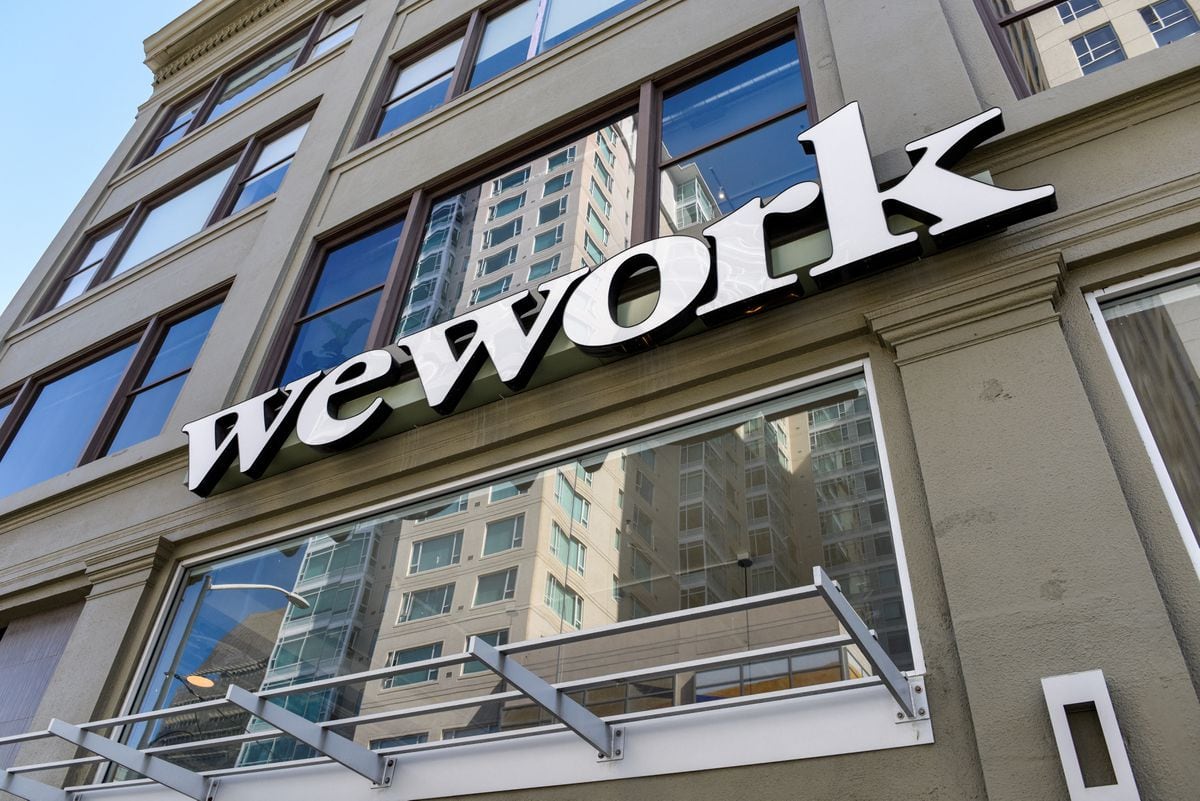WeWork, the company created by visionary Adam Neumann that seemed poised to revolutionize the office market, has filed for bankruptcy. His model aimed at entrepreneurs and emerging companies made the coworking, but it never really caught on as a business. What revolutionized the way of working was the pandemic. The generalization of teleworking has hit the office market, but even more so shared spaces. Many of the WeWork ones are practically empty and even closed. After losing more than 99% of its stock market value and being unable to meet its financial obligations, the company that was once worth $47 billion declared bankruptcy this Monday. The bankruptcy documents They estimate the company’s total debts at 18,656 million dollars (about 17,400 million euros) as of June 30.
The company has announced the measure in a statement in which it indicates that it has signed an agreement to support the restructuring of the company with holders of approximately 92% of its secured notes to drastically reduce debt. During this period, WeWork will rationalize its office lease portfolio: “WeWork requests the possibility of terminating the lease contracts for certain premises, the majority of which are not operational and all those affected have been notified in advance,” the statement says. Meanwhile, try to maintain business continuity. “Global operations are expected to continue as usual,” the company says.
The decision to initiate a bankruptcy process affects operations in the United States and Canada, but not the rest of the countries, at least for the moment. The group has rental spaces in 660 properties in 37 countries. According to documentation filed in a New Jersey court, the number of creditors exceeds 100,000. The main one of them all is US Bank Trust, with just over 180 million dollars.
The rise of WeWork was spectacular and its fall was resounding. It was founded in 2010 by the Israeli Adam Neumann and the American Miguel McKelvey, who opened their first office space in New York’s SoHo in April 2011. From there it began to grow, opening shared office spaces first in the United States and then in everyone, without worrying about the multimillion-dollar losses it suffered. It raised funds in different financing rounds that increased the value of the company by passing off as a technology company what was actually a successful, but not profitable, version of the real estate business. It added the Japanese group Softbank as a reference shareholder, which injected more than $10 billion into WeWork in one of the most ruinous investments in its history.
The company reached its maximum valuation in January 2019, at $47 billion, and then prepared to go public. When he filed the brochure with detailed company information in the summer of that year, it did not pass market scrutiny. Neither its accounts, nor its business model nor its future prospects supported the valuation it had been achieving. Added to this was Neumann’s unorthodox management style, a lover of excess, who installed a swimming pool and a sauna in his office and whose parties were legendary. In addition, he had operations linked to the company in which he benefited by renting real estate that he bought from the company. The IPO was cancelled.
Softbank decided to rescue the company and fire Neumann, who received multimillion-dollar compensation for his departure, but even with that he was not able to straighten the company’s course. To make matters worse, the pandemic and confinement completely changed work patterns. With the spread of teleworking, many offices were no longer occupied after the health crisis passed.
WeWork had losses of $3,129 million in 2020; of 4,439 million in 2021 and 2,034 million in 2022, according to their annual reports. Those 9.6 billion dollars in three years (about 9.1 billion at the current exchange rate) exceed what the company has earned in those same years. In the first half of this year, it had managed to reduce the red numbers to 613 million dollars, 39% less than in the same period of 2022, but the debts exceed the value of the assets and the company has consumed the available cash at an unsustainable pace. As of June 30, it has a negative equity of 3,718 million dollars, according to its latest quarterly report. It is technically bankrupt and the business is still not operating. The company, which was suspended from trading this Monday, was now only worth 45 million dollars, one thousandth of what it was in its moment of glory.
Despite its disastrous results, the company managed to enter the market through the back door, by merging with a Spac, a company created specifically to undertake a corporate operation. In August he already acknowledged that there was “substantial doubt” about its viability. Then, on October 2, it was unable to pay the interest on a series of debt issues. It began talks to sell assets, renegotiate leases and try to clean up its balance sheet. Last week, The company informed the United States Securities and Exchange Commission, the SEC, that after the 30-day grace period had expired, the negotiations were continuing and that a new additional moratorium of seven days had been agreed upon, a time that has been used to prepare his bankruptcy declaration.
Follow all the information Economy and Business in Facebook and xor in our weekly newsletter
The Five Day agenda
The most important economic quotes of the day, with the keys and context to understand their scope.
RECEIVE IT IN YOUR EMAIL
#WeWork #declares #bankruptcy #unable #pay #debts #billion
